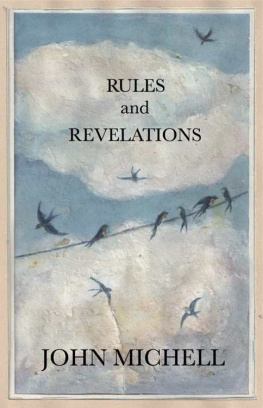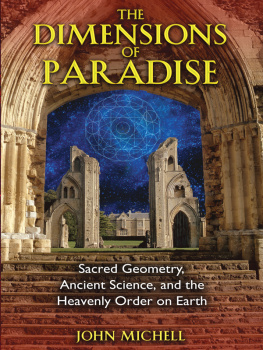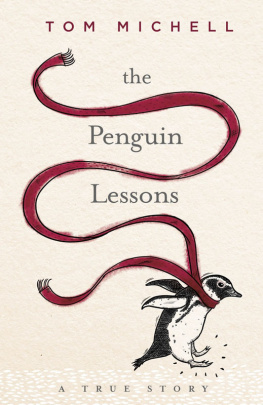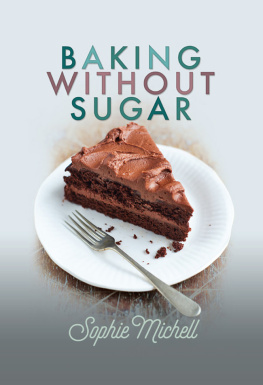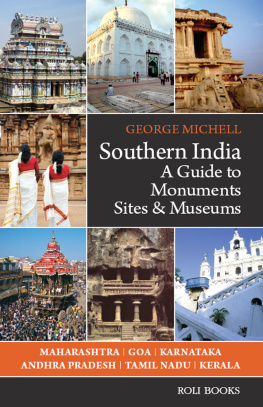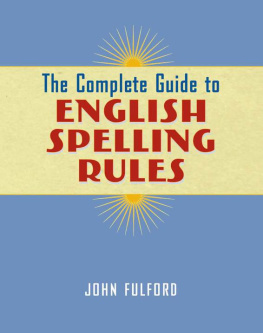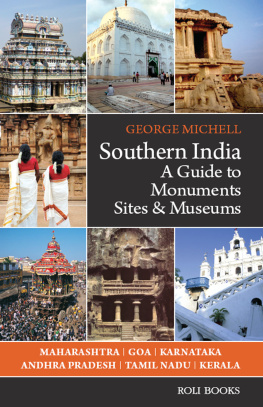John Michell - Rules and Revelations
Here you can read online John Michell - Rules and Revelations full text of the book (entire story) in english for free. Download pdf and epub, get meaning, cover and reviews about this ebook. year: 2012, publisher: Argonaut Books, genre: Science. Description of the work, (preface) as well as reviews are available. Best literature library LitArk.com created for fans of good reading and offers a wide selection of genres:
Romance novel
Science fiction
Adventure
Detective
Science
History
Home and family
Prose
Art
Politics
Computer
Non-fiction
Religion
Business
Children
Humor
Choose a favorite category and find really read worthwhile books. Enjoy immersion in the world of imagination, feel the emotions of the characters or learn something new for yourself, make an fascinating discovery.
- Book:Rules and Revelations
- Author:
- Publisher:Argonaut Books
- Genre:
- Year:2012
- Rating:5 / 5
- Favourites:Add to favourites
- Your mark:
- 100
- 1
- 2
- 3
- 4
- 5
Rules and Revelations: summary, description and annotation
We offer to read an annotation, description, summary or preface (depends on what the author of the book "Rules and Revelations" wrote himself). If you haven't found the necessary information about the book — write in the comments, we will try to find it.
John Michell: author's other books
Who wrote Rules and Revelations? Find out the surname, the name of the author of the book and a list of all author's works by series.
Rules and Revelations — read online for free the complete book (whole text) full work
Below is the text of the book, divided by pages. System saving the place of the last page read, allows you to conveniently read the book "Rules and Revelations" online for free, without having to search again every time where you left off. Put a bookmark, and you can go to the page where you finished reading at any time.
Font size:
Interval:
Bookmark:
RULES AND REVELATIONS
further essays
by
John Michell
Text copyright Estate of John Michell
All rights reserved
Birds on a Wire
Cover illustration Estate of John Michell
All rights reserved
Published 2012 by Argonaut Books
TABLE OF CONTENTS
The Good Old D ays
Phenomena
People
Science and Religion
Modern Madness
Apocalypse
Love
These are the last essays that John Michell wrote for his column on the Oldie Magazine, whic h he filed every month up to his death in 2009.
They cover a wide range of subjects, from Betjeman and the Queen to the financial crash of 2007 and flying saucers. However you read them in one sitting, or in small sips you will come away wiser, happier and with a clearer take on current affairs, riddled as they are with paradox and delusions.
A collection of earlier essays , edited by Jo s celyn Godwin with a superb introduction, was published by Dominion Press as Confessions of a Radical Traditionalist. I have organised these in the same way .
For more information on events connected to the life and work of John Michell, go to http://www.jo h n-michell-network.org/
Jason Goodwin
Rediscovering English History
Every so often there are letters in the Daily Telegraph complaining that schoolchildren are no longer taught English history. But were they ever? When I was at school in the 1940s our history lessons were just like the parody in 1066 And All That. We touched upon the Ancient Britons ( weeny, weedy and weaky as Caesar memorably called them), paid due respect to the Romans for their road-making skills, skipped though the rude Saxons and began history proper with William the Conqueror. After that it was a matter of Willy, Willy, Harry, Stee,/ Harry, Dick, John, Harry Three up to William & Mary, Anna Gloria, three Georges, William and Victoria. If you knew that jingle (hardly anyone can remember its middle part) you had a sound grasp of English history. That of course was Imperial history, and when the Marxists took over education they replaced it with their own version - no less stupid than the previous one and certainly more boring. But that is by the way. My real complaint about English history, both then and now, is that it is excessively, almost exclusively modern. The Norman occupation was less than a thousand years ago. What about the native civilizations before that?.
In Shakespeares time every child was familiar with the ancient, mythic dynasty of English kings - Lear or Leir who build Leicester, Bladud who mastered the art of flight and founded universities at Stamford and Bath, and his son Molmutius who repaired and paved the great roads that in times immemorial were laid in straight lines between the opposite capes and extremities of Britain. These roads were also sanctuaries; even a stranger with no knowledge of our language could pass along them unmolested and find hospitality everywhere. They were surveyed by the same system of measures, the mile, furlong, acre and so on, as known today. One of them, the Icknield Way, forms the main axis of southern England, stretching between its western and eastern extremities at the Lands End and the coastal border of Norfolk and Suffolk. Its hub is Avebury, the prehistoric national sanctuary, and on its direct line are many Christianized monuments of the old religion, including the remarkable Tor at Glastonbury, dedicated to the Archangel Michael. Below the Tor is the most venerable of our religious sites - the holiest earth in England - where the first Christian missionaries in Britain settled within a former Druid sanctuary. Their primitive oratory became the focus of a mighty Abbey, the senior religious house of England, whose legends refer to a great mystery - the secrets of a lost code of true knowledge which, like the Holy Grail, will one day be rediscovered, bringing light to the nation.
Successive royal charters from the earliest times confirmed the supreme authority of the Abbot of Glastonbury within the realm of Avalon. In each charter the same seven islands are named. Set in the watery marshlands to the north of the Abbey, these islands are mostly insignificant - small, low areas of dry land. But on a map their significance is apparent, for the seven islands together form the seven stars in the Great Bear, with the two island-stars that indicate the Pole Star pointing towards Glastonbury Tor - the pivot of a vast, mythological, ritualised landscape, laid out in ages beyond reckoning. Many such discoveries are waiting to be made, but someone has to look for them first, and that is where the modern, curtailed view of English history is such an obstacle. If children are not told about old English history, mythology and the relics of antiquity to which they refer, how can they be drawn to these mysteries? It is the same problem with the Holy Grail. If you do not know it exists, how can you look for it? You do not have to, of course, but informed opinion says that the pursuit of ancient truth and wisdom is a happier way through life than through the pointless confusion of secular, modern history.
PS If anyone can remember the whole of the Willy, Willy rhyme, I should be grateful for it.
A sentiment that has plagued and teased me throughout life is nostalgia - a yearning for something beautiful but nameless, for a state of being I feel I once knew but have now forgotten. It has nothing to do with an imagined childhood because I was aware of it as early as I can remember. As a little boy, left to play alone, I was attracted by flowers and other lovely things, but always with the idea that they had been even lovelier in days gone by. At school, on one of those long, languid summer evenings when nostalgia flourishes, walking back tired from a distant cricket field, I was suddenly impelled to tears by the glory of the world around me, a momentary glimpse, it seemed to me, of the true glory that had once been.
I wonder where it comes from, this feeling I have just described. One answer is that the world we are born into today is a sadly impoverished version of the pristine earth that human nature is adapted to. We are, as Bruce Chatwin used to insist, a naturally nomadic species; in that state we are harmless to nature and in tune with the spirits of the land. When we settle down to agriculture and commerce, our experience of life is narrowed and diminished. Yet we still yearn for the old ways, and every new baby is programmed to expect them. That is probably why they cry so much.
The sublime view is that nostalgia is a half-memory of the heavenly paradise we came from. That may be the ultimate source, but the melancholy of it feels to me like painful regret for something we once knew on earth. The modern mind, disordered by socialistic rancour and the doctrine of progress, is closed against the idea of golden ages in the past. But that is a recent inhibition. In all previous times the accepted view has been of deterioration, from divine rule, through ages of gold, silver and tin to decadence and dissolution. Ancient historians contrasted their heroic ancestors with their miserable contemporaries. We a re not the men our fathers were repeated the old wiseacres. That is surely a more seemly belief than the boastful and arrogant myth of progress. And with it goes the ideal that brings purpose to life, the ideal of a golden age restored, beginning, as Socrates recommended, with establishing it in ones self. The golden age has never departed, said the Irish mystic who called himself A.E; it is just that we have lost the habit of seeing it. The function of nostalgia, I now suppose, is to remind us of the real world. It is the world that Plato described, much as it is now, but far more intense and brilliant, where colours are real colours and the delights of nature are amplified to the level of paradise. Is this just a poetic fancy, or is it the firm ground behind my nostalgia?
Font size:
Interval:
Bookmark:
Similar books «Rules and Revelations»
Look at similar books to Rules and Revelations. We have selected literature similar in name and meaning in the hope of providing readers with more options to find new, interesting, not yet read works.
Discussion, reviews of the book Rules and Revelations and just readers' own opinions. Leave your comments, write what you think about the work, its meaning or the main characters. Specify what exactly you liked and what you didn't like, and why you think so.

